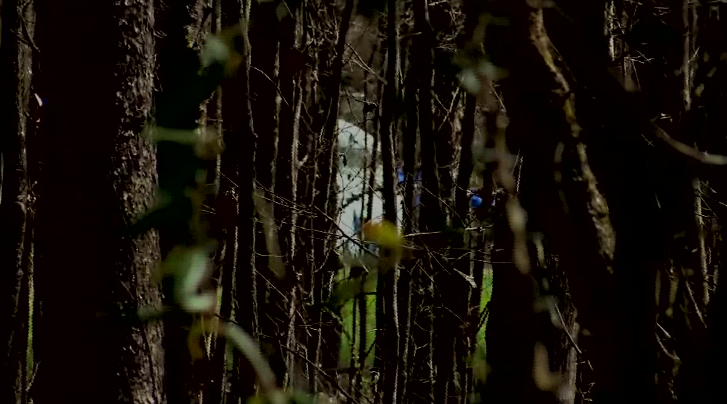“COVID toes” may be coronavirus symptom
There is still much to learn about the novel coronavirus, including a wide range of symptoms that appears to be expanding. Common symptoms of the respiratory illness include fever, cough, shortness of breath and chills, but some doctors have reported less obvious symptoms in some patients — including what some are calling “COVID toes” and other skin ailments.
Esther Freeman, director of Global Health & Dermatology at Massachusetts General Hospital and an assistant professor a Harvard Medical School, said “COVID toe” cases look similar to pernio or chilblains, a condition of inflamed blood vessels caused by cold temperatures.
“We’re seeing this inflammatory response that we would normally see when someone was exposed to the cold temperature… like someone who has been playing outside with wet socks,” Freeman told CBS News. “However, in this setting, we’re seeing it in warm climates and we’re seeing it in patients who have been indoors and sheltering in place.”
Freeman said it’s not unusual for a virus to cause a rash, so most dermatologists aren’t surprised that COVID-19 could cause skin symptoms. “What is surprising to me are these ‘COVID toes,’ these pernio-like lesions…because we haven’t seen as many reports of these in other viruses.”
Freeman is a practicing dermatologist at Massachusetts General Hospital who has been seeing patients via tele-health video appointments. “I have seen more toes in the past two weeks in my clinic than I have in my entire previous career combined,” said Freeman, who is a member of American Academy of Dermatology (AAD) COVID-19 task force.
Aside from seeing skin symptoms in her own patients, Freeman has also received examples of these symptoms from health care providers all over the world. The AAD COVID-19 task force set up an international registry for physicians to send in examples of dermatological manifestations of COVID-19, to help further the study of these symptoms. Physicians from 21 different countries have sent in information to the registry so far.
Freeman said “COVID toes” have been seen in both children and adults. They are sometimes present along with more typical coronavirus symptoms, and sometimes they are the only symptom the patient is experiencing. “Actually, about half of the registry is experiencing something other than toes,” Freeman said.
Some physicians have also reported seeing skin conditions that look like morbilliform (measles-like) rashes, hives or chickenpox.
In fact, one of the first case series of dermatologic manifestations included 18 Italian patients with several skin abnormalities including redness, hives and rashes, often on their torsos, Freeman and her colleagues write in the Journal of American Academy of Dermatology.
Freeman says her own patients tend to come to her with two main concerns. “The first thing they want to know is ‘My toes are purple, am I going to get really sick?’ I can be reassuring that most of the patients in our registry, most of the data that we’re looking at, are doing really very well,” Freeman said. “The second thing my patients want to know is, ‘Am I potentially infectious? Could I be infecting my family members?'”
Freeman said it is important to be cautious because some “COVID toe” patients might still be infectious and should talk to their doctor about getting a coronavirus test.
“The overall message I want to tell the public is not to panic,” Freeman said. “Most of our patients who have these ‘COVID toes’ are doing extremely well.”
“If you need to go to the ER because you’re otherwise sick or you have other symptoms you need to be evaluated for, that’s fine. But if the only symptom you have is purple toes, you don’t need to go rushing into the ER,” Freeman said, adding that if a patient does experience toe or skin abnormalities, they should talk to their physician.
A team of dermatologists from Brussels, Belgium and and Portland, Oregon have also studied toe and skin infections in relation to COVID-19. In a case report published in JAAD, they say it’s important for dermatologists to recognize the signs.
The researchers write about a 23-year-old man who had “acute-onset” purplish and painful plaques on his toes and the outer side of his feet for three days. For several days before that, he’d also had a low-grade fever and dry cough.
After a complete skin examination, the patient tested positive for COVID-19. The researchers say he was diagnosed with “COVID-19 infection–induced chilblains,” the medical term for the skin sores. Similar cases have been observed by French and Belgian dermatologists, but had not been previously reported due to lack of testing, the researchers said.
“Young patients presenting with chilblains have lacked criteria sufficient to allow for a COVID-19 PCR test,” according to the study. “Because of the recent outbreak of chilblains, concurrent with the increase of COVID-19 cases, COVID-19 has been widely suspected as the etiology,” or cause, they write.
This study looked COVID-19 chilblains cases in children and young adults, whose feet have been more affected than their hands.
“Chilblains may be the inaugural symptom of COVID-19, and a fever and dry cough may be minimal or even absent,” according to the study.





Leave a Reply